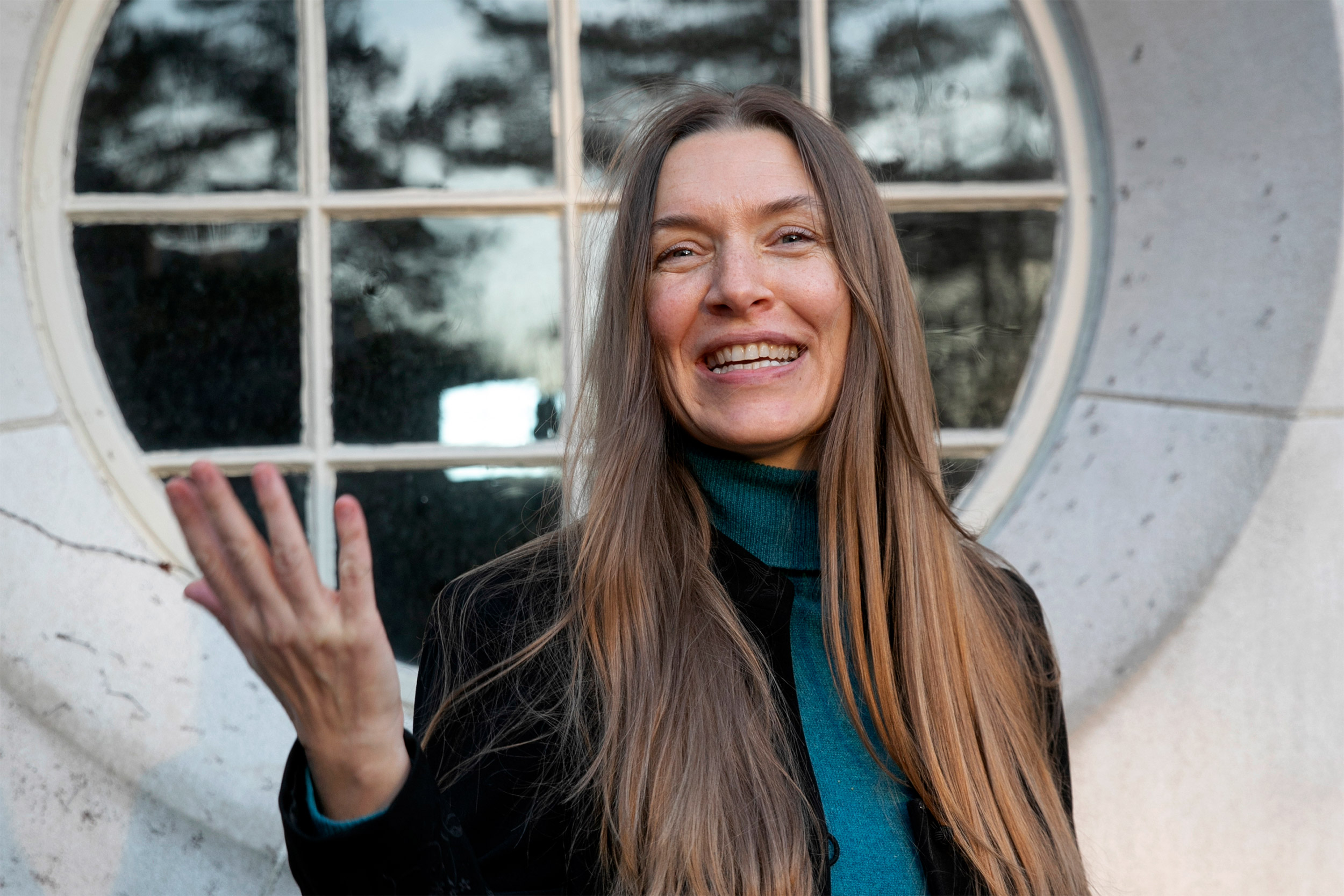
Manja Klemenčič is a lecturer in General Education and on Sociology. Her staple courses are “Higher Education: Students, Institution, and Controversies,” “Sociology of Higher Education,” and “Students in Service and Leadership in Higher Education.”
Jon Chase/Harvard Staff Photographer
Advice to students: Enact your agency, build resilience
Manja Klemenčič urges a fearless pursuit of engagement with life, work, and world
This is part of a series called Focal Point, in which we ask a range of Harvard faculty members to answer the same question.
Focal Point
Manja Klemenčič
Question: If you were to write a letter to your students, what would you want them to know?
The start of a new academic term always fills me with excitement and eager anticipation of who will join me in my courses and where our discussions will take us. I care deeply about my students having agency not only to pursue acts of learning, but also to shape the course and our class learning community. I believe that offering students opportunities to shape the course at least in some way helps you become the kind of agentic individuals, which are central to the functioning of liberal democracies and open-market economies. It also helps you to engage more purposefully with your own learning and the way the course aligns with your wider educational and professional goals. When you are offered opportunities to take part in course development, even if only by filling in the mid-term course evaluations, don’t hold back.
The same advice goes for when you see opportunities or needs for changes in campus life. I have observed with admiration how my own students have brought about changes on campus. Notably, the First-Year Retreat and Experience (FYRE) pre-orientation program was created by students. Short of starting something new, there are many high-impact opportunities to serve and shape the Harvard community. Students in my higher-education courses have shown me the impact “student administrators” can have on experiences of their peers while interning at the Women’s Center, the Office of Student Life, Phillips Brooks House Association, in peer education programs, as coordinators of pre-orientation programs, members of House Committees, Undergraduate Council or Honor Council, Peer Diversity Fellows, Peer Advising Fellows, or Grille managers. And student athletes, artists, journalists, researchers, and teaching assistants, and leaders of some of the many groups on campus have shown me not only that students can connect their extracurricular engagements to course learning, but also that these roles make them more self-regulated, self-directed learners, and more involved in construction of knowledge in the courses.
“Your everyday activities in your campus job or in student groups, as small as they seem, are an indispensable part of Harvard. You help make Harvard the place you value it to be.”
In my courses on higher education, I help students make the connection between being students and learning about higher education as a social institution. Such understanding, I believe, strengthens student agency — that is, it hones your ability to shape your own learning pathways and be University citizens to contribute to the betterment of our University communities. As you will join different groups and institutions throughout your life, you ought to be able to navigate the social roles, power relations, and cultural scripts inherent in them. And you ought to be able to find ways to redefine and reconstruct them to reflect what you value. Through involvement in service and leadership roles on campus you are learning about enactment of agency within groups and institutions. And as I discover in my own research, service and leadership roles on campus also can help you build meaningful relationships, develop a sense of mattering, find a purpose, and foster a feeling of belonging on campus. Your everyday activities in your campus job or in student groups, as small as they seem, are an indispensable part of Harvard. You help make Harvard the place you value it to be.
This past year has been a powerful reminder that as educators we ought to strengthen your agency, but we also have to help you build resilience. We are not doing you a service if we shield you from controversial topics, topics you might find sensitive, even offensive. And you are not doing yourself a service if you are avoiding courses, events, or people that do not align with your viewpoints or your values. College is a great place to build the arsenal to tackle tough conversations, encounters with people who hold views very different from yours, perhaps even offensive to you … all of which are an inevitable part of adult life. You need to understand the positions of those you disagree with to be able to argue against them. As a society to function, we need to be able to converse across our differences, find common ground rather than shout past each other or ignore each other.
When you leave Harvard, you will need all the resilience you can muster to tackle the challenges of life, work, and the world. Hence, while at Harvard, don’t look for comfortable or easy options. Choose courses that will challenge you, even unsettle you. Don’t accept being coddled. When you choose to engage in debates, please have the intellectual curiosity to explore the topic in depth, have the intellectual honesty to recognize the merits of arguments of the opposing side, admit to the weaknesses in your own viewpoint, and have the intellectual humility to admit when you don’t know and wish to learn more.
— Manja Klemenčič
Lecturer in General Education and on Sociology




